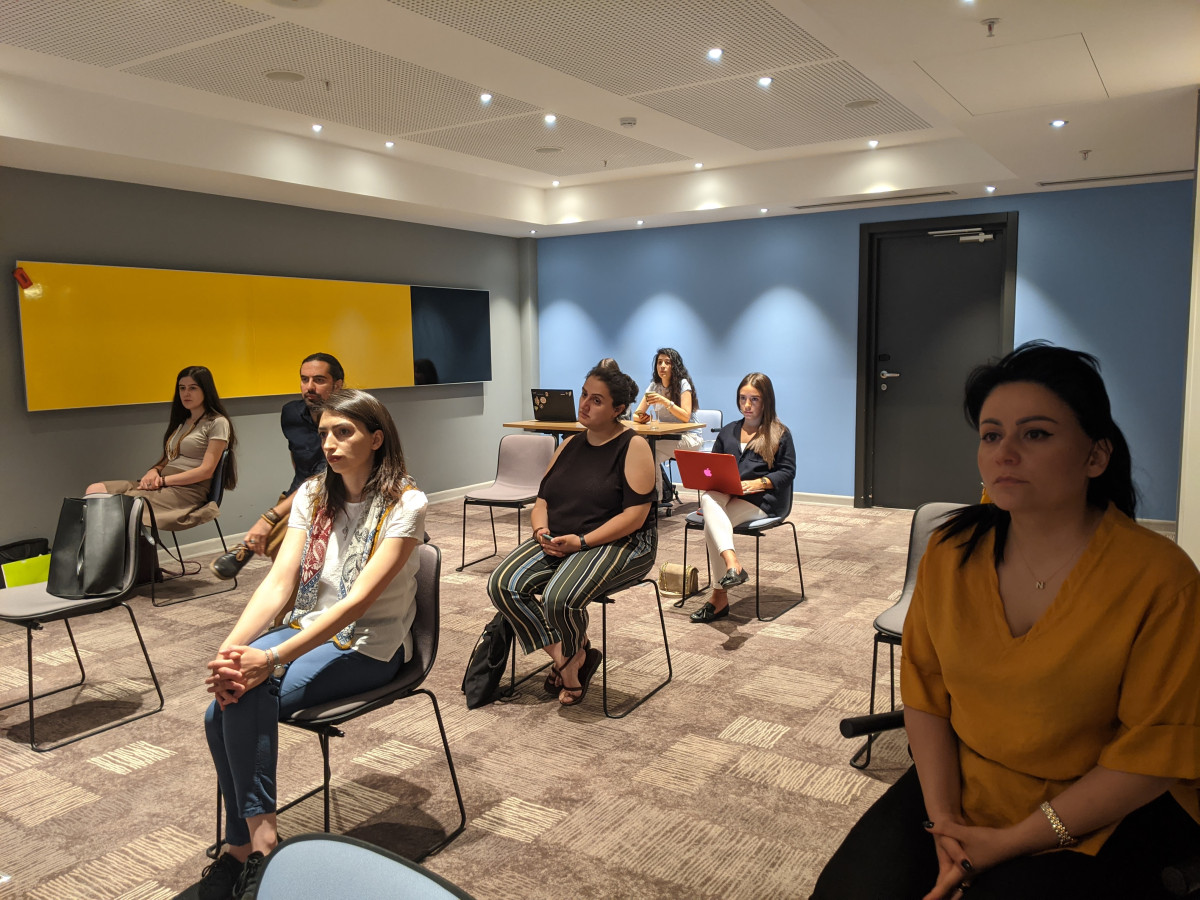Combatting the impacts of COVID-19 in Eastern Partnership countries
Published: Nov 13, 2020 Reading time: 4 minutes Share: Share an articleSupporting local civil society and independent media is crucial to containing the impacts of the COVID-19 pandemic and contributing to the long-term, socio-economic resilience of vulnerable groups in the Eastern Partnership countries. People in Need (PIN) is launching a new EU-funded project to tackle this challenge head-on.

Armenian women from the remote Shirak region who have lost their jobs, internally displaced people and ethnic minorities in Georgia who need improved access to legal and other services, and children with cancer and their families in Moldova who lack personal protective equipment: these are some of the beneficiaries of the EU COVID-19 Solidarity Programme for the Eastern Partnership. This project is being implemented by PIN, in partnership with the Netherlands Helsinki Committee (NHC), and AFEW International. Supported by the European Union, the three organisations have joined forces to propose a set of interventions in Armenia, Georgia, Moldova, Ukraine, and other countries to mitigate the impact of the COVID-19 pandemic.
“We recognise the critical role that local civil society organisations (CSOs), watchdog initiatives, and local independent journalists play in service delivery, community mobilisation, awareness raising, policy engagement, and advocacy for the protection of human rights and civic freedoms during and after the pandemic,” says Dorota Šuráňová, regional programme manager at PIN.
PIN aims to boost the capacity of CSOs providing services to a range of vulnerable groups and provide sub-grants to mitigate the impact of COVID-19.
“Working with such a diverse group of actors will provide us with insight into the needs of different sectors,” says Šuráňová. “Information collected from grantees will offer a unique mapping of gaps in services and vulnerable populations, and this data can later be used to better target aid.”
In July, PIN launched the first round of calls for grants focused on economic recovery, education, social services, and protection, and nine CSOs in Armenia, Georgia, and Moldova were selected; the second round is now beginning in these countries. The call is also being opened in Ukraine. The activities PIN is supporting include, for example, capacity building for social and legal service providers, the distribution of supplies, digitalisation of education, psychosocial support provision, and trainings to promote economic recovery.
Below are the finalists of the first round of calls by PIN in Armenia
The “Women’s Rights House” will implement the “Fighting COVID-19 by promoting women entrepreneurship in the Shirak region” project. The aim of this project is to mitigate the impact of COVID-19 and contribute to the long-term, socio-economic resilience of vulnerable groups in the Shirak region. The target group consists of women who have lost their jobs due to the COVID-19, women who have special talents that could be put to productive use, or those who are skilled in handcrafts and need basic equipment to start their own small businesses. The project will enable beneficiaries to take part in training, acquire the necessary equipment, and start their own small businesses. The capacity-building group will include 25 women between the ages of 18 and 45 from the Shirak region. Ten of them will receive sub-grants to start their businesses.
“Hai Mairer” (Armenian Mothers) from the Lori region developed the “Specialisation for the mothers of children with disabilities” project. The aim of the project is to provide socio-economic and psychosocial support to 20 mothers of children with cerebral palsy by giving them the opportunity to take part in professional trainings to become hairdressers or manicurists. In addition, beneficiaries will be provided with the technical resources and equipment needed in order for them to enter the market shortly after completing their specialised training. This will enable these women to be financially independent and more confident, while gradually also overcoming feelings of depression and vulnerability.
“Mihr” (Creators’ Union) will implement the “Time for Care” project, which will provide immediate support to individuals most vulnerable to the hardships caused by COVID-19. The target groups are lonely seniors, families with disabled relatives, vulnerable women who have lost their jobs, and young artists. The project aims to prepare winter food supplies for vulnerable seniors and families with disabled relatives living in Ahnidzor, Karindj, Aznvadzor, Nor Khachakap, Chkalov, Ardvi, Mghart, Dzoragyugh, Akori, Kachachkut villages of the Lori region. The proposed project will use peer-to-peer support, where the vulnerable groups will help each other. Unemployed women will be provided with the skills and equipment needed to prepare dried fruits and sew reusable bags, for which they will be compensated. They will be able to keep the equipment and resources at the end of the project so that they can continue to earn an income. Artists will be providing creative packaging, as well as staging performances for seniors and families with disabled relatives as a way of providing psychological support.
Contacts:
Dorota Šuráňová, dorota.suranova@peopleinneed.cz, (Czech Republic)
Shushanik Nersesyan, shushanik.nersesyan@peopleinneed.cz (Armenia)
Ramaz Chichinadze, ramaz.chichinadze@peopleinneed.cz (Georgia)
Natalia Rotaru, natalia.rotaru@peopleinneed.cz, (Moldova)

